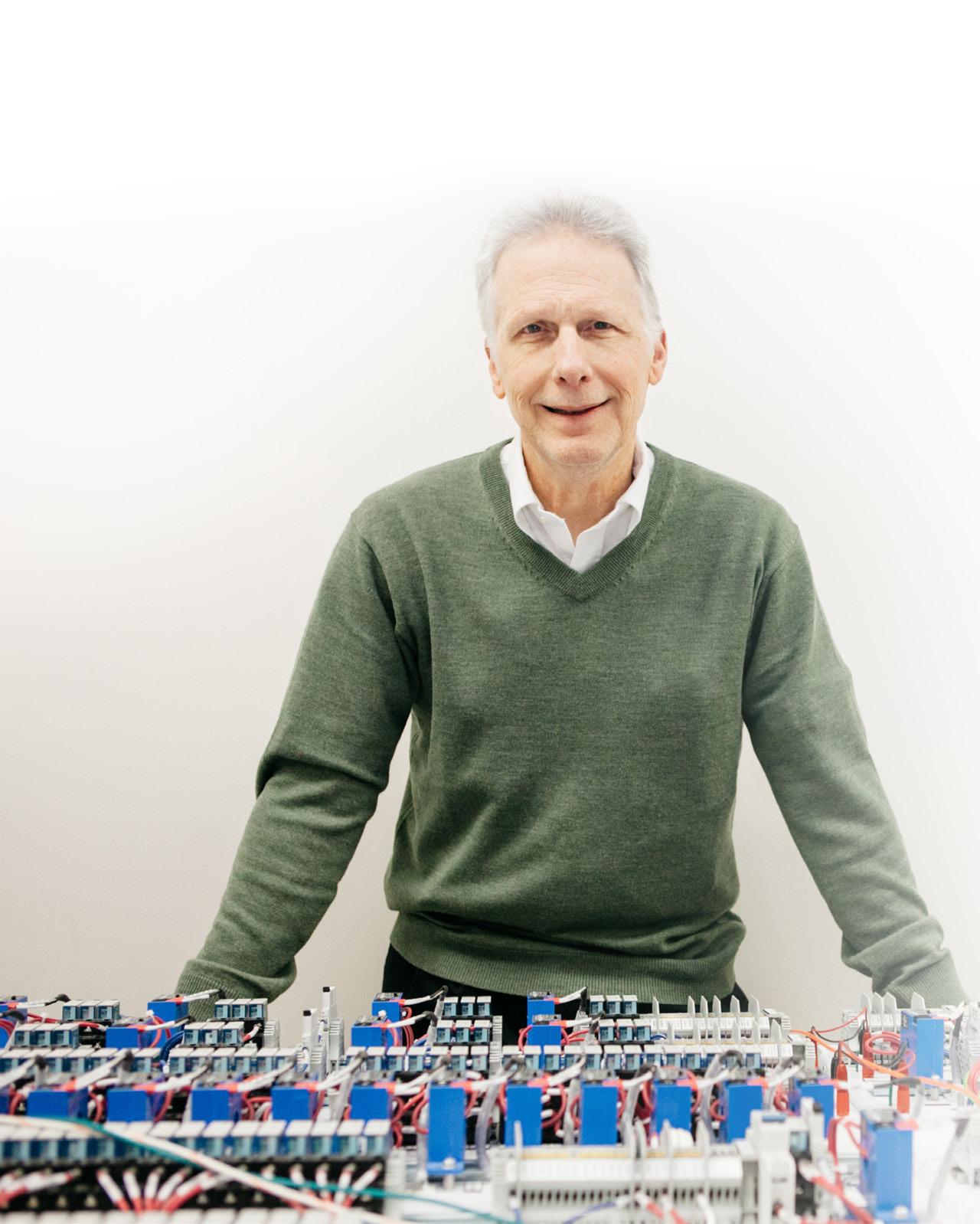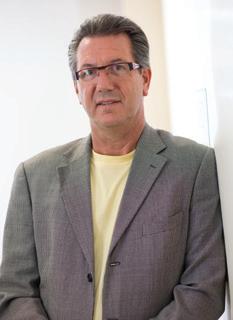
7 minute read
Professional development for engineering students
Professional development lab for engineers to launch next fall
Pilot program began spring semester
Advertisement
This fall, the Case Alumni Association reached out to the Division of Engineering Leadership and Professional Practice team at the Case School of Engineering to discuss issues regarding professional development for engineering students. We brought together engineering alumni to offer feedback from an industry perspective to Marc Buchner, associate dean for academics, and Debbie Fatica, an assistant dean and director of DELPP. All agreed that offering more professional development opportunities to students is critical in creating industry-ready alumni upon graduation.
The participating team members came up with great suggestions to pair alumni with students, and the team is working to implement many of the programs over the next few semesters. Buchner and Fatica also shared information about a new requirement for engineering students, ENGR-396, beginning in the 2017-18 academic year. Taught by a Weatherhead School of Management instructor, Ellen B. Van Oosten, ENGR-396 is a professional development lab for engineers offered as a pilot program this semester.
“This course is much different from most other engineering courses. Whether or not a student ends up in a technical management position, the tools and insights from this course will benefit him or her in all walks of life,” said Van Oosten, assistant professor of organizational behavior and faculty director of executive education at Weatherhead. “As an engineering graduate myself, I have firsthand knowledge of the importance of this course and am honored and excited to help our students achieve their goals.”
The course is modeled after the flagship LEAD course in place at Weatherhead for over 25 years. Intentionally designed to support and broaden a student’s self-awareness, professional competencies and teaming skills, 20 percent of the final grade requires students to conduct career informational interviews with individuals in a career or job of interest.
Volunteers needed
Alumni can help with the course in a number of ways. They can meet with students and share their experiences as part of the career informational interview assignment. They can also volunteer to be a speaker or join a panel to share their story and insights with students. In addition, there is always a need to provide rich and meaningful work co-op and internship experiences, Van Oosten pointed out. “Ultimately, as I state in the syllabus for the students, this course is about shaping the technical professional within you so you are best positioned to succeed in relating to, collaborating with and leading groups of diverse individuals,” Van Oosten said. Alumni sharing their stories around such professional experiences is invaluable.
Our engineering students are very bright and very talented and involved in numerous activities on campus while also working as a co-op or intern in companies, Van Oosten added. They often have firsthand learning experiences that illuminate the need for support with professional development and get them excited to learn about what effective technical leaders and professionals do.
Identifying strengths
Brittney Sunday (right) works on her interviewing skills.
Brittney Sunday is majoring in chemical engineering and will complete her undergraduate degree this May. She took the professional development lab previously and declared it as one of the best classes she has ever taken. “One of the biggest takeaways from this class was learning about the differences in people and their learning styles. I was able to identify my own learning style,” Sunday said. “One of the most helpful assignments was when we were tasked with interviewing professionals in fields of interest, which helped me solidify my career plans.”
With graduation looming, Sunday will start a job with Pfizer later this spring. The course was helpful throughout the job search process and focused her on identifying her strengths and using them to her advantage. “Consciously thinking about my strengths helped immensely during job interviews. I could better
verbalize what I bring to the company, as well as give concrete examples,” she said.
Staying true to one’s values
Michael Siberski completed his undergraduate degree in mechanical and aerospace engineering in 2016. He works under contract as a fuel cell test engineer at General Motors in Detroit. He originally heard about the professional development lab in mid-November 2015, just before his last semester of school.
“I’ve always considered myself to be a people-oriented person, so the opportunity to study the behavior of others in the work world really attracted me,” Siberski said. “The course seemed more of an education on ‘the inner workings of the professional mind,’ which really intrigued me.”
Siberski said he learned a lot about the functioning of teams, emotional intelligence and the behavioral patterns of good leaders. He was not expecting the amount of work the students did trying to understand themselves as individuals with unique talents and tendencies, and how to apply them. In that respect, he said the course greatly exceeded his expectations and considered it a turning point in his life.
“I felt as if I was able to wake up from the autopilot following the plan that I had had since I first started college, and to really start to ponder what was next, which wasn’t easy,” Siberski explained. “Of course, that result won’t come about without putting lots of intentional thought into the assignments – you get out of the course what you put in.”
Now that he has been in the workforce for a short while, Siberski realizes that the course provided him an invisible compass to use when he was interviewing for his first job out of college. He was better able to listen to his gut in order to pick out opportunities that complemented his values and strengths and to turn down the ones that did not.
“I think that really helped me to set myself up for success in my current role as a test engineer in the GM Hydrogen Fuel Cell lab,” Siberski said. “I wanted to work for a cause that positively disrupts the transportation industry, in this instance by providing a zero-emissions alternative for automobile propulsion.”

Michael Siberski ‘16
We need alumni volunteers to help with ENGR-396
Any engineering alumni available for a panel discussion on Feb. 20, 2017, to speak to the class about your career on another date, or for career informational interviews as part of the professional development lab for engineering students, contact Director of Alumni Relations Kellie Mayle at kellie.mayle@casealum.org or 216-368-0635.
Professional development for students
Make a difference by mentoring a student
It is now easier than ever for alumni to help current students find a fulfilling career path thanks to a new automated mentoring program that connects our alumni to engineering, natural science and mathematics students. A 15- or 30-minute conversation can change a student’s life forever. The Alumni Career Network makes mentoring simple – the system provides automated matching, scheduling and follow-up communications, and a forum for alumni to provide the advice Case students want and need.
Sponsored by the Case Alumni Association, the Case Western Reserve University Alumni Association and Career Center, the professional networking platform called Wisr was cofounded by Case Western Reserve alumnus John Knific, a biology major who graduated in 2009.
“I’m so thrilled to have Case as one of our five pilot partners,” said Knific, Wisr president and chief operating officer. “Case students are not coddled; they put in the hours. They deserve to have more frequent touch points, individuals who have been in their shoes.”

The new initiative launched in February 2017, but alumni have been signing up since December in order to ensure they were included in the initial mentoring sessions. Knific said his team is “blown away” with the commitment and resources that student affairs, the career office, alumni relations and the Case Alumni Association have brought to the table to ensure a successful launch.
Knific said that he and cofounder Kate Volzer were inspired originally by the idea that every student should have a personal board of advisors. If more Case students could find their drive and passion, paired with their incredible work ethic, amazing things can happen, Knific added.
“I was all over the place as a student. I studied pre-med biology, music and entrepreneurial studies at Weatherhead School of Management. I know I could have used Wisr! Learning to juggle different disciplines, with the academic rigor of Case helped me develop a ‘get stuff done’ attitude, which has grown and persisted into becoming a technology entrepreneur and executive,” Knific said.

John Knific ‘09, Wisr president and chief operating officer
industry-standard authentication, automatically created profiles using LinkedIn, activity analytics and custom-branded web applications. Wisr maintains calendar appointments, helps build discussion topics and agenda, provides automated feedback and has an integrated conference bridge. A provided metrics dashboard makes it easier to monitor user activity.
“Wisr will provide us the opportunity to facilitate and measure new connections between alumni and students and provide a platform for networking and mentoring, something we believe to be extremely valuable,” said Kellie Mayle, director of alumni relations at the Case Alumni Association. “We are thrilled to partner with Wisr and feel that the platform will help us leverage relationships between alumni and students for career exploration.”
Register today at case-signup.wisr.io and transform a student’s career forever

Laura Papcum, assistant director for Alumni Career Services, works with students in the Career Center










